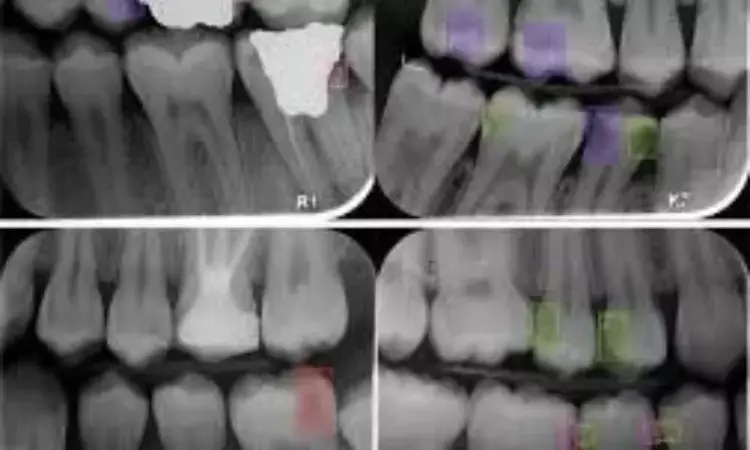- Home
- Medical news & Guidelines
- Anesthesiology
- Cardiology and CTVS
- Critical Care
- Dentistry
- Dermatology
- Diabetes and Endocrinology
- ENT
- Gastroenterology
- Medicine
- Nephrology
- Neurology
- Obstretics-Gynaecology
- Oncology
- Ophthalmology
- Orthopaedics
- Pediatrics-Neonatology
- Psychiatry
- Pulmonology
- Radiology
- Surgery
- Urology
- Laboratory Medicine
- Diet
- Nursing
- Paramedical
- Physiotherapy
- Health news
- Fact Check
- Bone Health Fact Check
- Brain Health Fact Check
- Cancer Related Fact Check
- Child Care Fact Check
- Dental and oral health fact check
- Diabetes and metabolic health fact check
- Diet and Nutrition Fact Check
- Eye and ENT Care Fact Check
- Fitness fact check
- Gut health fact check
- Heart health fact check
- Kidney health fact check
- Medical education fact check
- Men's health fact check
- Respiratory fact check
- Skin and hair care fact check
- Vaccine and Immunization fact check
- Women's health fact check
- AYUSH
- State News
- Andaman and Nicobar Islands
- Andhra Pradesh
- Arunachal Pradesh
- Assam
- Bihar
- Chandigarh
- Chattisgarh
- Dadra and Nagar Haveli
- Daman and Diu
- Delhi
- Goa
- Gujarat
- Haryana
- Himachal Pradesh
- Jammu & Kashmir
- Jharkhand
- Karnataka
- Kerala
- Ladakh
- Lakshadweep
- Madhya Pradesh
- Maharashtra
- Manipur
- Meghalaya
- Mizoram
- Nagaland
- Odisha
- Puducherry
- Punjab
- Rajasthan
- Sikkim
- Tamil Nadu
- Telangana
- Tripura
- Uttar Pradesh
- Uttrakhand
- West Bengal
- Medical Education
- Industry
AI-assisted bitewing radiographs have high accuracy for caries detection, reveals research

AI-assisted bitewing radiographs have high accuracy for caries detection, reveals research published in the Journal of Dentistry.
This systematic review and meta-analysis aimed to investigate the diagnostic accuracy of Artificial Intelligence (AI) for approximal carious lesions on bitewing radiographs. This study included randomized controlled trials (RCTs) and non-randomized controlled trials (non-RCTs) reporting on the diagnostic accuracy of AI for approximal carious lesions on bitewing radiographs. T
he risk of bias was assessed using the Quality Assessment of Diagnostic Accuracy Studies (QUADAS-2) tool. A systematic search was conducted on November 4, 2023, in PubMed, Cochrane, and Embase databases and an updated search was performed on August 28, 2024. The primary outcomes assessed were sensitivity, specificity, and overall accuracy. Sensitivity and specificity were pooled using a bivariate model.
Results: Of the 2,442 studies identified, 21 met the inclusion criteria. The pooled sensitivity and specificity of AI were 0.94 (confidence interval (CI): ± 0.78–0.99) and 0.91 (CI: ± 0.84–0.95), respectively. The positive predictive value (PPV) ranged from 0.15 to 0.87, indicating a moderate capacity for identifying true positives among decayed teeth. The negative predictive value (NPV) ranged from 0.79 to 1.00, demonstrating a high ability to exclude healthy teeth.
The diagnostic odds ratio was high, indicating strong overall diagnostic performance. AI models demonstrate clinically acceptable diagnostic accuracy for approximal caries on bitewing radiographs. Although AI can be valuable for preliminary screening, positive findings should be verified by dental experts to prevent unnecessary treatments and ensure timely diagnosis. AI models are highly reliable in excluding healthy approximal surfaces.
Reference:
Bruna Katherine Guimarães Carvalho, Elias-Leon Nolden, Alexander Schulze Wenning, Szilvia Kiss-Dala, Gergely Agócs, Ivett Róth, Beáta Kerémi, Zoltán Géczi, Péter Hegyi, Márton Kivovics. Diagnostic accuracy of artificial intelligence for approximal caries on bitewing radiographs: A systematic review and meta-analysis, Journal of Dentistry, Volume 151,2024, 105388, ISSN 0300-5712, https://doi.org/10.1016/j.jdent.2024.105388.
Dr. Shravani Dali has completed her BDS from Pravara institute of medical sciences, loni. Following which she extensively worked in the healthcare sector for 2+ years. She has been actively involved in writing blogs in field of health and wellness. Currently she is pursuing her Masters of public health-health administration from Tata institute of social sciences. She can be contacted at editorial@medicaldialogues.in.
Dr Kamal Kant Kohli-MBBS, DTCD- a chest specialist with more than 30 years of practice and a flair for writing clinical articles, Dr Kamal Kant Kohli joined Medical Dialogues as a Chief Editor of Medical News. Besides writing articles, as an editor, he proofreads and verifies all the medical content published on Medical Dialogues including those coming from journals, studies,medical conferences,guidelines etc. Email: drkohli@medicaldialogues.in. Contact no. 011-43720751


